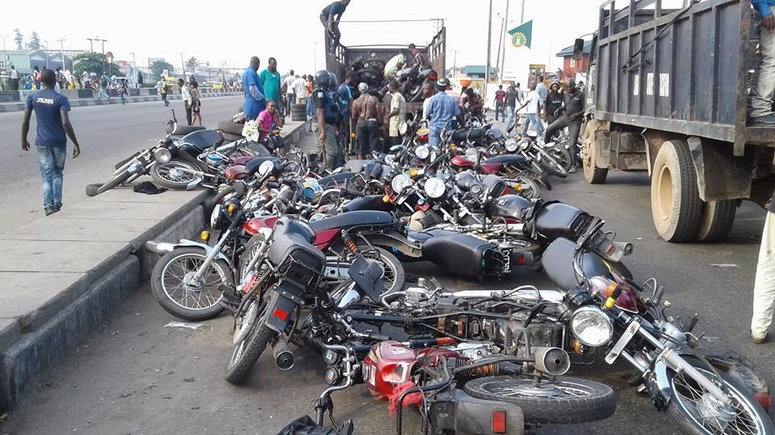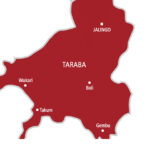The excesses and lawlessness being perpetrated by commercial motorcycle (Okada) riders in different parts of the country, with attendant maiming and loss of lives daily, has prompted the above question among many people. Why is it actually difficult to check the excesses?
Many reasons account for this. The high level of unemployment in the land has pushed many Nigerian youths into commercial motorcycling. Motorcycle, as a means of road transportation, complements other bigger vehicles because it is cheaper and can easily navigate heavy traffic jams.
- 2023: South-West women asks Yahaya Bello to declare for presidency
How ministry used 1971 Decree to dissolve sports federations
Also, there are no effective strategies by road transport regulators to regulate okada operations. Okada is not only a means of transport as criminals, too, use it for their nefarious motives. For instance, kidnappers, rapists, armed robbers use motorcycles as an easy get-away transport system to carry out their criminal activities. Politicians also donate motorcycles to people as constituency projects.
Part of the reasons for the riders’ recklessness is that most of them are neither trained nor licenced to operate. They, therefore, constitute fatal risks to themselves and society.
Some psychotropic substance addicts flout traffic rules with impunity. They do not only constitute nuisance to other road users, but also themselves and their passengers when they fall accident victims.
People that express disgust at okada menace have observed that most of the operators do not have the requisite knowledge of road safety laws and recommend better education and enforcement of traffic rules.
The story of Okada riders is virtually the same everywhere. They are notorious for overspeeding. They ride without helmets and side mirrors. But the police, often times, fold their hands against the recklessness.
In January 2020, the Lagos State Government announced some restrictions on okada and tricycles in six local government areas as an attempt to checkmate the menace. The government had claimed that over 11,000 persons were killed between 2011 and 2019, while 600 deaths were recorded between 2018 and 2019. At a point, the casualty figures became worrisome so much that government created okada wards in hospital. It also proscribed okada and tricycles from plying 40 bridges and flyovers across the state.
The Federal Road Safety Corps October Road Traffic Crash (RTC) Report 2016, gave another scary outlook that commercial motorcyclists have remained a major cause of fatal road traffic accidents across the country. According to the FRSC report, motorcycle accidents rank third after cars, which accounted for 457 cases or 36 percent, followed by mini-buses with 243 or 19 percent of the total figures. The Corps had to advise the Secretary to the Government of the Federation to encourage and facilitate state governments to ban the use of motorcycles for commercial purposes. Before then, the National Council on Transport had recommended a nationwide ban on commercial motorcycles in Nigeria.
In tackling the challenge, some states in the north have banned the use of motorcycles for commercial purposes as applicable in Plateau, Kano, Katsina and Kaduna. What was allowed was the riding of motorcycles by only one person. This was done to check the activities of insurgents that were found to be using motorcycles to commit crime.
Ghana and Sierra Leone also witness okada menace. But special strategies are deployed to forestall it. For instance, the Central Motor Traffic and Transport Department (MTTD) of the Ghana Police Service had to organise lessons for selected okada riders. Also, Ghana Medical Association (GMA) has recommended an embargo on okada operations in the country until regulation policies are put in place. In what can be considered as a collaborative intervention, the Sierra Leone Road Safety Authority (SLRSA), police and Okada Bike Riders Association had to work together to produce road rules and regulations for commercial bike riders.
With joint efforts of stakeholders, similar proactive measures and proper legislation, it is possible to end Okada menace in Nigeria.
Also, politicians should look for other means of touching the lives of their people without flooding the streets with motorcycles. Our security agencies should enforce special okada traffic laws. Designated lanes should be assigned to operators to reduce their contacts with motorists. Government should create employment to reduce the number of youth operators. Okada Riders Association, the police and road safety corps should intensify collaboration with a view to ensuring the end of okada menace.
Dr. Kupoluyi writes from Federal University of Agriculture, Abeokuta (FUNAAB), Ogun State.

 Join Daily Trust WhatsApp Community For Quick Access To News and Happenings Around You.
Join Daily Trust WhatsApp Community For Quick Access To News and Happenings Around You.


